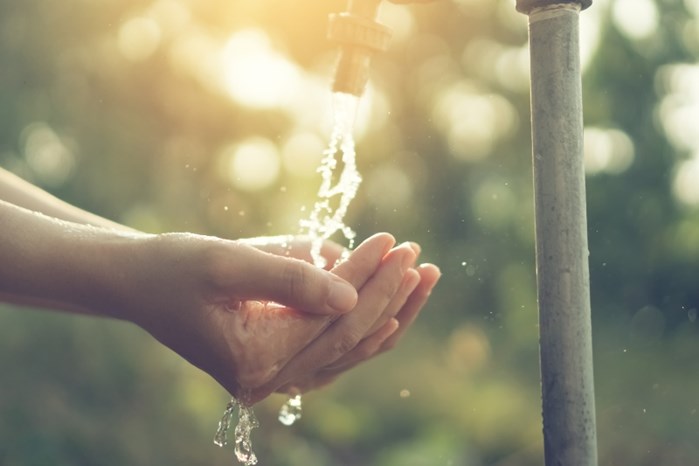Going back to our source: the value of water
Water covers more than 70 percent of the Earth’s surface. It is vital to sustain life, and fundamental to industry. Yet access to safe and clean water remains one of the biggest challenges the world faces today.
This year, World Water Day, 22 March 2021, focuses on the value of water. Water means different things to different people – and to different users. Water has been at the core of Kiwa’s work since the very start. Here Dragan Jovanov, head of the Water Business Sector at Kiwa, talks about the challenges around water today, its value, and the role Kiwa plays.
Kiwa’s history with water
“Water goes back to the very early origins of Kiwa – it's embedded in our DNA and is an integral part of our corporate identity. If you look at our logo, you’ll see a beaver, which represents a number of things. Beavers are commonly found in a natural, healthy, clean water environment; many of the services we provide are to ensure safe and clean water. Beavers bring progress in nature, and are steady, friendly and hard-working creatures, just like people at Kiwa.”
“After the Second World War, there was a deteriorating water quality and supply network infrastructure in The Netherlands that fueled the need for improvement. Stakeholders in the industry collaborated to establish standards and regulations to solve the problem. This is where Kiwa emerged as an independent third party to ensure they were implemented correctly.”

Dragan in Kiwa's water laboratory in Rijswijk, The Netherlands.
Today’s water issues
What are some of the issues around water today? “One of the major issues globally, is that water is not evenly distributed, and therefore, many people cannot access safe and clean water. We are dealing with the effects of extreme weather events, while protecting access to water for direct consumption, industrial and agricultural use. This clearly calls for better resource management and allocation amongst the various users,” Dragan says.
“Another big challenge is the ageing infrastructure and the need for improved operational efficiency. Old, damaged and inefficient infrastructure can lead to contamination and water loss. This feeds directly into the need for more investments to drive innovation and the race for new smart and intelligent tech-enabled solutions.”
“As more new products and technologies come available in the water sector, users want to know that these products are safe. That’s where Kiwa comes in: we make sure that the new products entering the market meet national and international regulations and standards; making quality visible to all stakeholders in the sector.”
One of the major issues is that water is not evenly distributed, and therefore, many people cannot access safe and clean water.Dragan Jovanov
Challenges for the water sector
What are the challenges Kiwa's clients face around water? “One of their big challenges is effectively navigating through the increasingly more complex regulatory landscape. Suppliers in the water sector often need to declare to customers and governments that they comply with safety and quality requirements. Piping systems, storage tanks, coatings, rubber components, water meters, valves, sanitary tapware, industrial and household appliances, water treatment installations and manufacturing processes – all must meet rigid requirements that may vary significantly from country to country,” tells Dragan.
“Other challenging factors include availability of raw materials, changes in the supply chain, shorter product life-cycles and securing sufficient funding to support innovative strategies. We see an increased demand from our clients for tailored and integral solutions that enable them to develop and launch new products more cost-effectively in different markets.”
Valuing water: different meanings
World Water Day 2021 is about valuing water, and how it means different things to different people. “Water is inherently valuable to all of us, and the nature of that value depends on the context,” Dragan says. “In western Europe, we are looking at efficiency improvements, re-use and minimizing contamination; in sub-Saharan Africa and other developing countries, the groundwork is still being laid for broader access to drinking water.”
“So when we think about value, we first need to recognize and consider the different needs and challenging trade-offs that are presented to us. This is why the conversation that World Water Day is starting this year is so important. We all can work towards a common goal, each of us contributing in our own way. We’re all climbing the sustainability ladder, and I think with more awareness and pressure, we will get closer to our shared goal.”
Safeguarding our valuable resources
Kiwa contributes to safeguarding the valuable resource of water. How do we do that? Dragan explains: “Increased awareness of the challenges we face today has led to a consumer-driven revolution: people are demanding better quality and more transparency. The water industry is therefore increasingly challenged to co-create solutions together with the different stakeholders. Something we do well at Kiwa. Ultimately, it’s not only about the volume, it’s also about the quality of the water. By making quality visible in the market place, we aim to continue safeguarding this valuable resource and in this way make our contribution to the Sustainable Development Goals.”
“Water plays a very complex role in today’s society. Globally, we need to find social, economic and ecological balance in the way we manage water if we are to tackle the challenges the world faces. I am very proud to be part of Kiwa and together with our team, to be able to contribute to the future of society. As a partner for progress, we can tackle these global water challenges together.”
As more new products and technologies come available, users want to know that these products are safe. That’s where Kiwa comes in.Dragan Jovanov



